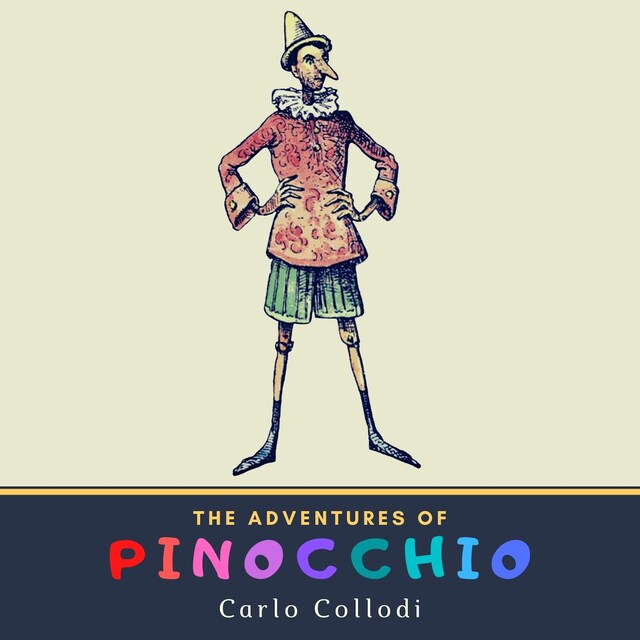
The Adventures of Pinocchio
Beskrivning av boken
The Adventures of Pinocchio (Italian:
Le avventure di Pinocchio), also simply known as
Pinocchio, is a novel for children by Italian author Carlo Collodi, written in Pescia. It is about the mischievous adventures of an animated marionette named Pinocchio and his father, a poor woodcarver named Geppetto.
It was originally published in a serial form as
The Story of a Puppet (Italian:
La storia di un burattino) in the
Giornale per i bambini, one of the earliest Italian weekly magazines for children, starting from 7 July 1881. The story stopped after nearly 4 months and 8 episodes at Chapter 15, but by popular demand from readers, the episodes were resumed on 16 February 1882. In February 1883, the story was published in a single book. Since then, the spread of
Pinocchio on the main markets for children's books of the time has been continuous and uninterrupted, and it was met with enthusiastic reviews worldwide.
A universal icon and a metaphor of the human condition, the book is considered a canonical piece of children's literature and has had great impact on world culture. Philosopher Benedetto Croce reputed it as one of the greatest works of Italian literature. Since its first publication, it has inspired hundreds of new editions, stage plays, merchandising, television series and movies, such as Walt Disney's iconic animated version, and commonplace ideas such as a liar's long nose.
According to extensive research done by the
Fondazione Nazionale Carlo Collodi in the late 1990s and based on UNESCO sources, the book has been adapted in over 260 languages worldwide, while as of 2018 it has been translated into over 300 languages. That makes it the most translated non-religious book in the world and one of the best-selling books ever published, with over 80 million copies sold in recent years. According to Francelia Butler, it remains "the most translated Italian book and, after the Bible, the most widely read".


